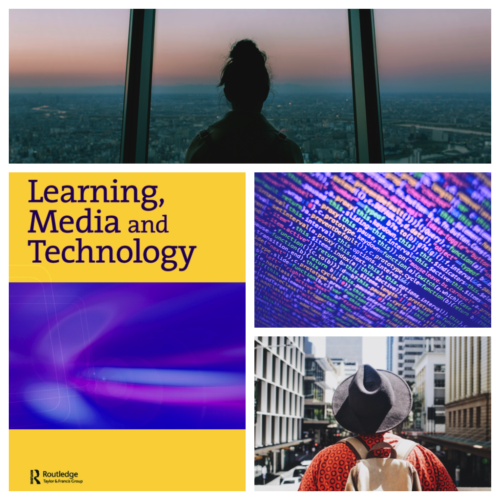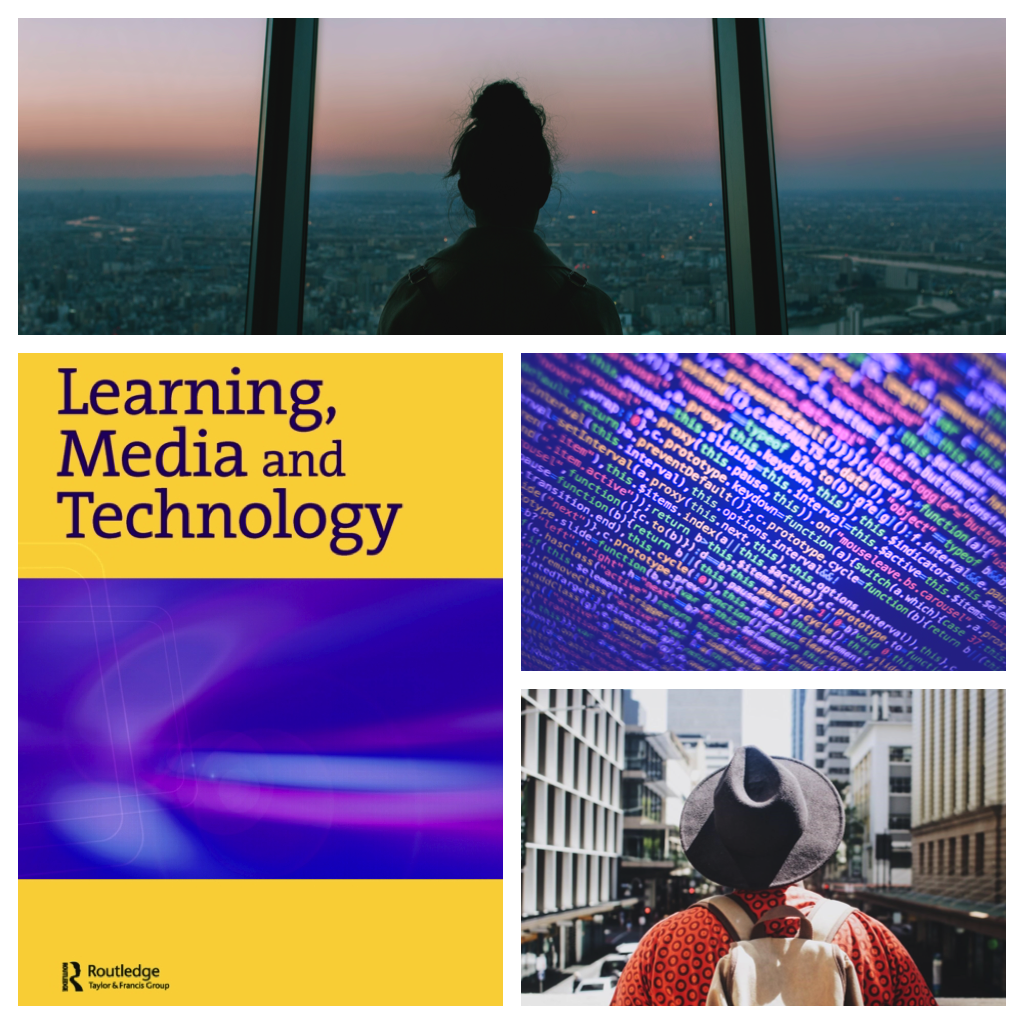
Jeremy Knox and I, both of the Centre for Digital Education at the University of Edinburgh are guest editing a special issue of Learning, Media and Technology titled Global technologies, Local Practices: redefining digital education with marginalised voices. We are currently soliciting abstracts for proposed papers for the special issue. Abstracts should be no longer than 300 words and be accompanied by up to six keywords.
- Deadline for submission of abstract: 15th March 2018
- Successful authors informed: 15th April 2018
- Deadline for submission of full papers: 15th September 2018
Full papers are expected to be between 6,000 and 8,000 words (please refer to the journal website for full ‘instructions for authors’). All papers will be subject to the usual blind reviewing and refereeing processes. If you have any questions, please feel free to contact myself or Jeremy.
The Call
In recent years, technology has been positioned at the centre of numerous initiatives seeking to end a supposed crisis in education across the globe. In this narrative, propelled into the mainstream through somewhat dramatic accounts of Open Educational Resources (for example, Daniel and Killion 2012) or Massive Open Online Courses (critiqued in Kovanović et al. 2015), technology is hailed as the ultimate means to expand the reach of Western educational endeavours, specifically towards those populations with the least access to education, or the most economic disadvantage. Similar are the abundant projects involving hardware devices, often gifted or subsidized to schools in developing countries in exchange for loyalty to the in-built curricula and software, such as One Laptop Per Child (see Kullman & Lee 2012; Selwyn, 2013). The high-profile promotion of such initiatives often tends to overshadow any accounts of practice ‘on the ground’.
In these ways, digital technology and media is too often framed as a transparent instrument for educational export, keeping (specifically Western) curricula, pedagogy, and educational values intact whilst they are broadcast to a global population in deficit. With often alarming ease, this kind of digital education is presented as an agent of liberation from cultural, social, economic, or political restraints, made free by the “flattening out of hierarchies”, the “boosting of individual freedoms”, and the reduction of “centralized controls” (Selwyn, 2009). This tech-fuelled liberation tends to seek an active break with local contexts, ushering in a ‘Silicon Valley narrative’ (Weller 2015) of disruption and revolution, alongside a ‘solutionism’ (Morozov 2013) that supplants regional differences with a decisive model of universal educational practice. In these conspicuous global education ventures, the most prominent voices are too often those invested in the widespread adoption of the technology.
This special issue seeks to surface perspectives that challenge the dominant narrative of a universal technological solutionism by foregrounding local pedagogical knowledge and practices of learning with technologies. These insights will contribute towards a better understanding of the diverse, multifaceted, and contested project of digital education across the globe, where technologies conflict and correspond in complex ways to differing cultural, social, and political contexts. Through these marginalised accounts, this special issue will develop critical perspectives concerning the rise of digital education as a ‘global phenomenon’, and advance much more nuanced accounts of the tensions, compromises, idiosyncrasies, and obfuscations through which digital media is shaping (and being shaped by) local practices of teaching and learning across the globe.
This special issue asks:
- How are local educational ideals being fostered and practiced with digital education?
- How are educational technologies being resisted and transformed in different cultural contexts?
- To what extent do digital technologies and media maintain and amplify colonialist orientations in education, and/or what might a post-colonial digital education look like?
- What (local) learning practices, pedagogies, and systems are being largely unaccounted for in contemporary accounts of digital education?
- Is a truly representative form of global education possible with technology?
References
Daniel, J. & Killion, D. (2012, July 4). Are open educational resources the key to global economic growth. Guardian Online. Retrieved from https://www.theguardian.com/higher-education-network/blog/2012/jul/04/open-educational-resources-and-economic-growth
Kovanović, V., Joksimović, S., Gašević, D., Siemens, G., & Hatala, M. (2015). What public media reveals about MOOCs: A systematic analysis of news reports. British Journal of Educational Technology, 46(3), 510-527.
Kullman, K., & Lee, N. (2012). Liberation from/liberation within: Examining one laptop per child with Amartya Sen and Bruno Latour. In The Capability Approach, Technology and Design (pp. 39-55). Springer Netherlands.
Morozov, E. (2013). To save everything, click here: Technology, solutionism, and the urge to fix problems that don’t exist. London: Allen lane.
Selwyn, N. (2013). “Empowering the World’s Poorest Children”? A Critical Examination of One Laptop per Child. In The Politics of Education and Technology (pp. 101-125). Palgrave Macmillan US.
Selwyn, N. (2009). The ‘new’ connectivities of digital education. In Michael W. Apple, Stephen J. Ball, Luis Armando Gandin (Eds.) The Routledge International Handbook of the Sociology of Education. London: Routledge.
Weller, M., (2015). MOOCs and the Silicon Valley Narrative. Journal of Interactive Media in Education. 2015(1), p.Art. 5. DOI: http://doi.org/10.5334/jime.am

[…] Call for papers for special issue of Learning, Media and Technology- Global technologies, Local Prac… […]
Where/how do you submit the abstract?
Hello Aleks,
To submit an abstract please email that to myself and my co-editor Dr. Jeremy Knox at michael.s.gallagher@ed.ac.uk and jeremy.knox@ed.ac.uk. Thank you!